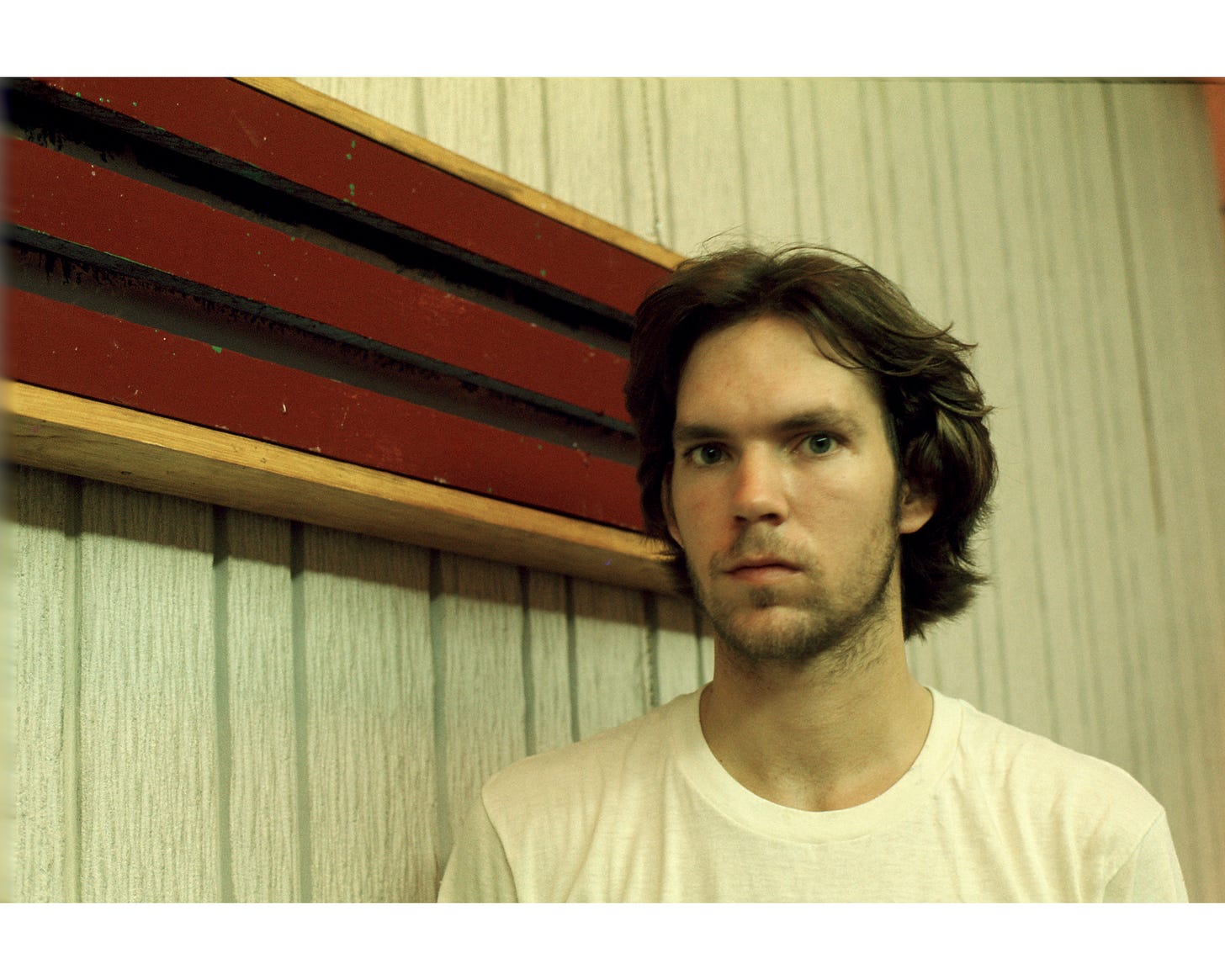Ask a Sober Oldster #4: Kevin Teare
"I was tricked into recovery by an artist who lived on the Bowery."
This monthly interview series is a collaboration between Oldster Magazine and The Small Bow, ’s excellent newsletter about sobriety and mental health, and will appear in both newsletters. Learn more about this collaboration in this Oldster podcast/videocast episode.

Kevin Teare attended Ball State and Indiana University as an undergraduate and received his M.F.A. from Bard College in 1997. He has taught at Lacoste School of Art in France, Dowling College, Southampton College, and lectured at Muhlenberg College as well as S.V.A. in New York.
He has been the recipient of a National Endowment Award in Painting and a Joan Mitchell Fellowship Award. He has exhibited at P.S.1./MOMA, White Columns, Guild Hall, The Parrish Museum, Indianapolis Museum, Fort Wayne Museum, as well as galleries in New York, Long Island, and Europe. He currently works and lives in Sag Harbor, New York.
How old are you and how long have you been sober?
I was born the same year The Earth Stood Still came out, so 72 in two months. I will have 40 years on February 14th, 2024.
How did you get there?
I was born in Indianapolis to a hard drinking, factory worker of a father and a mother who worked at a newspaper and looked a lot like Lois Lane. My sister is ten years older than me and bought me Hollywood Monster Magazines. I loved them all.
Both of my parents were given up at birth, so our household had a major orphan vibe about it.
My mom left my father when I was 12 due to his drinking. He would die a year and a half later in a car crash…also due to his drinking.
I picked up my first drink a year and a half later and instantly bonded with my father on a much deeper level than any time during his lifetime. I learned immediately why the adults were so fucking happy in the evening. The following morning I learned why they were jumpy, solemn, and tense after being so happy the night before. Drinking and drugging would be my “door to the river” for the next twenty years.
And then I was tricked into recovery by an artist who lived on the Bowery. Not actually on the street outdoors but in a great big loft next to a men’s mission. You had to step over guys to get in his door. This maneuver would come in handy later when carrying the message to certain of my associates who wouldn’t take it.
What is the best thing about being in recovery?
The chirping of the 4 AM cocaine birds has stopped. That’d be right at the top.
Plus, I have a relationship with a power greater than myself, where I kind of see that I'm just in a minuscule part of an amazingly large celestial mechanism. And, not being so guilt and shame driven. I'd like to say I'm all better, but it's still an ongoing process.
And human relationships. I remember in senior year in high school, somebody asking me, what do you want to, what are you going to be when you grow up? And I was like, I'm going to be a fucking loner. I’m going to live in a garrett. It's going to have one light bulb without a shade. Plaster is going to be falling off. I'll be writing poetry and painting. That's what I would do. And they're like, you're so immature. And they were right.
What is the hard part about being in recovery?
The hard part is the degree to which I'm tethered to my feelings – like slights perceived and real.
Like a lot of alcoholics, I have that degree of obsessive compulsiveness that is like a heat-seeking missile for whatever the darkest part of what's going on in my life is.
What’s the best recovery memoir you’ve ever read? Tell us what you liked about it.
The one I haven’t written yet.
As someone who reads mostly history and biography, I find recounts of someone’s mood altering to be highly suspect. I mean if you got it right, how high were you?
What’s hard about recovery?
I’ve heard people in recovery say many times: “Addicts are just more sensitive than regular people.” I maintain that we’re just more touchy. It’s like we were born with frayed insulation around our wiring. Feeling is largely the work of recovery. Getting beyond “slights, real or perceived”. Taking everything personally is one of the biggest hurdles to early sobriety. You’ve got four days without a drink and you tell someone that your rent is three months in arrears, your girlfriend is ghosting you and your cat died and they reply: “Keep comin’ back!” Your options are: 1. go get a drink, 2.murder them where they stand or 3. keep comin’ back. I speak from experience.
And like a lot of alcoholics, I have that degree of obsessive compulsiveness that is like a heat-seeking missile for whatever the darkest part of what's going on in my life is. I actually asked a therapist about this once. I said, “How come I always just obsess on the dark shit? Why don't I obsess on all the incredibleness of my life?”
And he said, “If you did that and if everybody did that, I'd be out of business.”
What are some memorable sober moments?
Too many to mention. But being awake enough so that you appreciate the synchronicity when things roll your way.
Are you on meds? Are you in therapy? Tell us about that.
I’m not currently on Rx meds although I do take melatonin an valerian for sleep. Having chronic Lyme has severely effected my ability to fall asleep.
Also not in therapy at the moment although my wife and I burned through two couple’s counselors trying to decide whether to keep our dog or not.
What sort of activities or groups do you participate in to help your recovery? (i.e. swimming, 12-step, meditation, et cetera)
AA mostly. And Wim Hof breath work by myself and with other people.
But I rarely leave my yard. My work is here as is my dog. Once in a while I get together with other mostly sober artists and musicians to record. Sometimes the results end up on vinyl.
My wife travels for the both of us, but I will travel if it’s work related.
Are there any other questions we haven't asked that you think we should add to this?
You know, when the Big Book says sobriety will bring you a life “beyond your wildest dreams”? How has that stood up against your wildest dreams?
I wanted to be able to play music, but I also wanted a career in art. I wanted to teach and all of that's happened.









“Frayed insulation around our wiring.” Great metaphor. I could listen to him for a long, lomg time.
Thank you, Kevin, AJ, and Sari for this excellent interview.
As someone in recovery myself I appreciate your take on the sensitivity of a drinker and I look forward to reading the book that is, as yet, unwritten! My favorite part was the last question about life beyond your wildest dreams and that it has come true for you. A life of my dreams was a great driver for me to give up my wine-drinking habit, I felt if I didn't I would be a shell of my former self, rather than continual movement toward my potential.